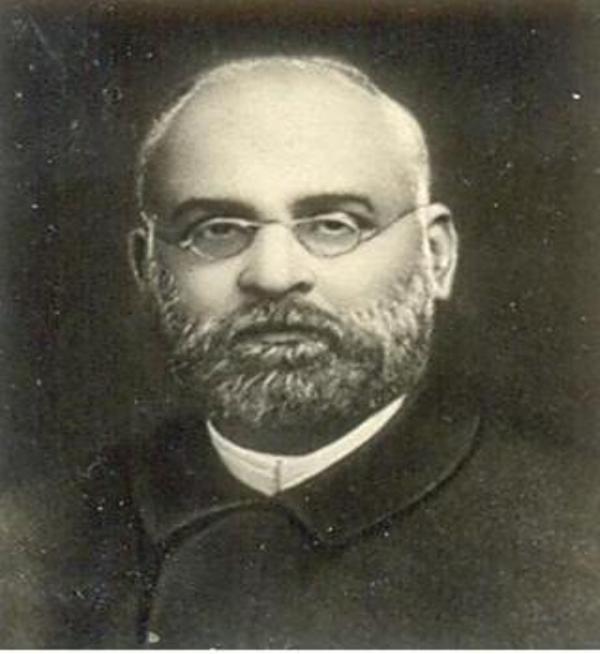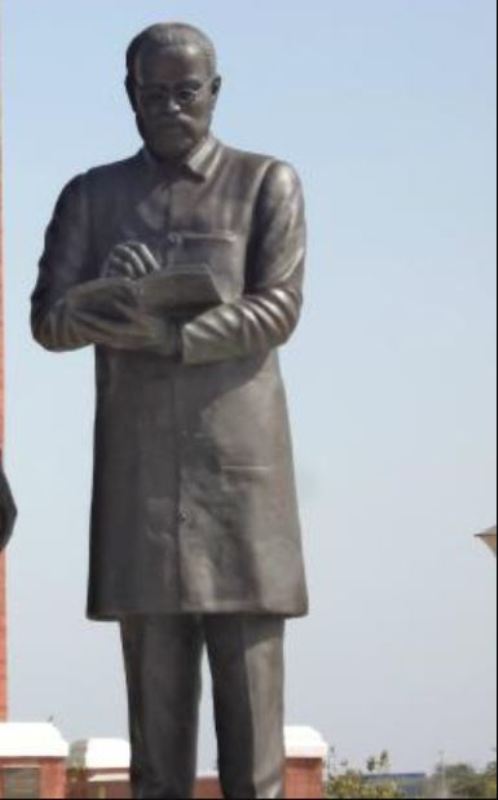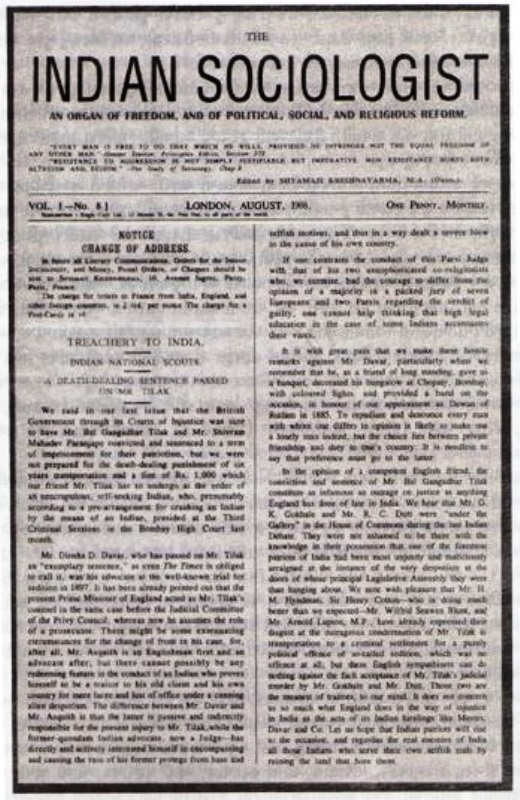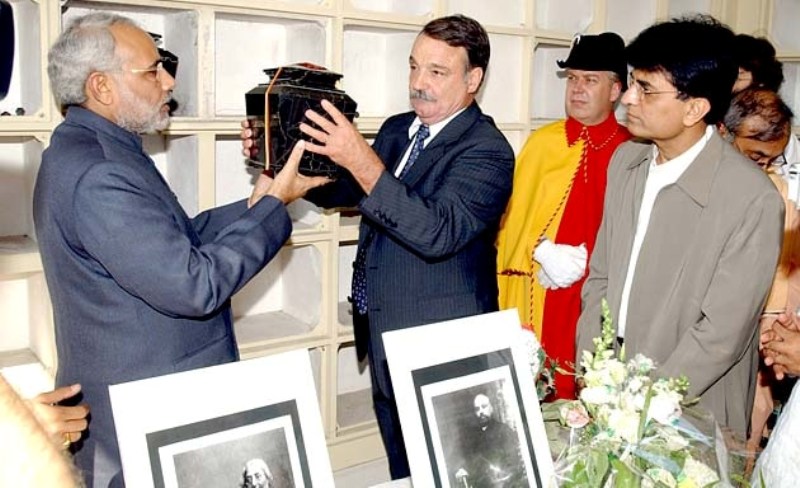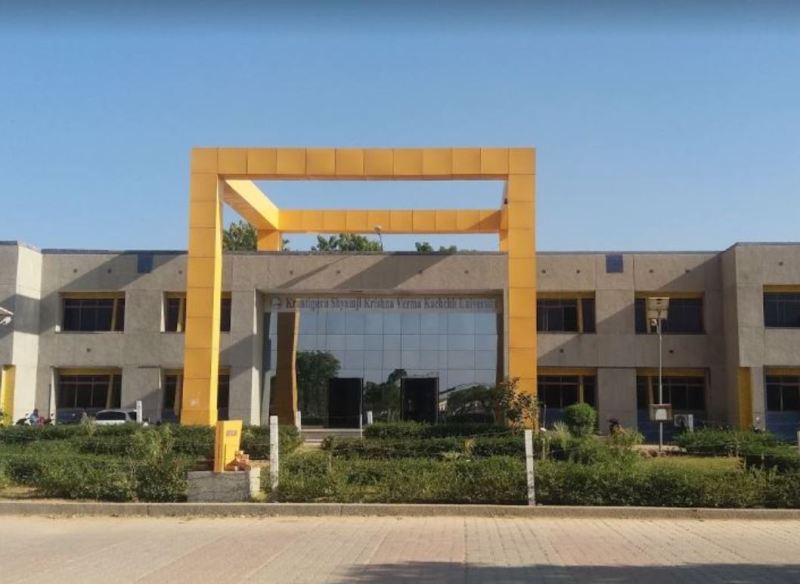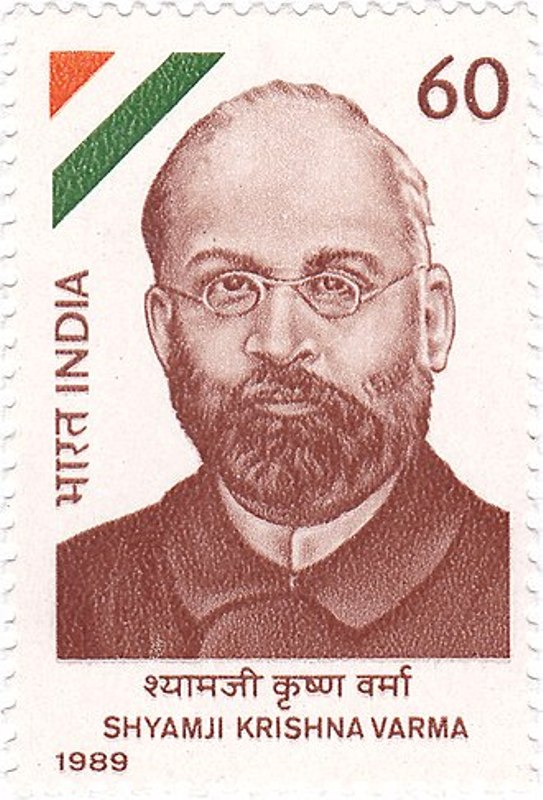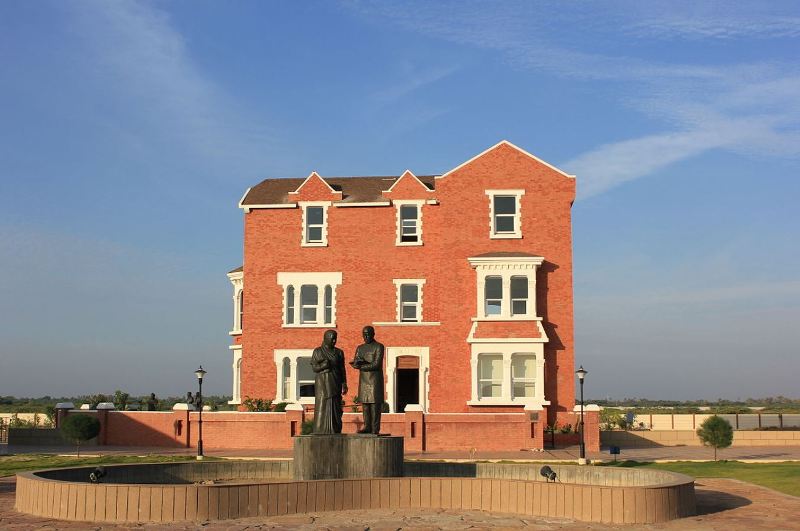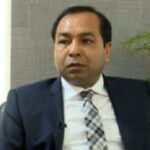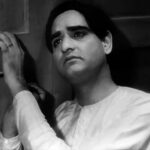Shyamji Krishna Varma Age, Death, Wife, Children, Family, Biography & More
| Bio/Wiki | |
|---|---|
| Profession(s) | • Lawyer • Journalist • Freedom Fighter |
| Famous for | Being the founder of the Indian Home Rule Society, India House, and The Indian Sociologist organisations in London during India's struggle for freedom |
| Physical Stats & More | |
| Eye Colour | Black |
| Hair Colour | Black |
| Personal Life | |
| Date of Birth | 4 October 1857 (Sunday) |
| Birthplace | Mandvi, Cutch State, British India (now Kutch, Gujarat) |
| Date of Death | 30 March 1930 |
| Place of Death | A local hospital in Geneva |
| Age (at the time of death) | 72 Years |
| Death Cause | Prolonged Illness [1]The Indian Express |
| Zodiac sign | Libra |
| Nationality | British Indian |
| Hometown | Mandvi, Cutch State, British India (now Kutch, Gujarat) |
| School | Wilson High School in Mumbai |
| College/University | Balliol College, Oxford, England |
| Educational Qualification(s) | • School education at Wilson High School in Mumbai • Graduation at Balliol College, Oxford, England [2]Kranti Teerth |
| Relationships & More | |
| Marital Status (at the time of death) | Married |
| Marriage Year | 1875 |
| Family | |
| Wife | Bhanumati Krishna Varma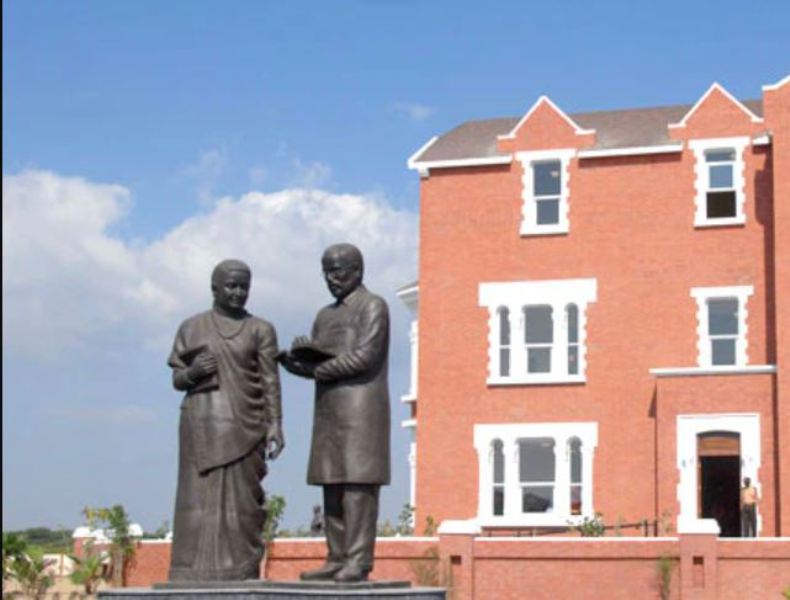 |
| Parents | Father- Krushnadas Bhanushali (Labourer in cotton press company) Mother- Gomatibai |
Some Lesser Known Facts About Shyamji Krishna Varma
- Shyamji Krishna Varma was an Indian revolutionary freedom fighter who was also a lawyer and a journalist. He was the founder of the three organisations named the Indian Home Rule Society, India House, and The Indian Sociologist in London during India’s struggle for independence against the British rule in India. These organisations were the meeting houses for the Indian revolutionaries and students on foreign soil. Shyamji Krishna Varma was a great follower of Indian patriots named Bal Gangadhar Tilak, Swami Dayanand Saraswati, and Herbert Spencer. He also served as the divan of Ratlam and Junagadh states of India. He followed the cultural nationalism ideology of Dayanand Saraswati and Herbert Spencer’s doctrine “Resistance to aggression is not simply justified, but imperative.” Shyamji Krishna Varma lived his entire life in exile to avoid litigation charges against him in foreign countries.
- In 1875, Shyamji Krishna Varma came into contact with the founder of Arya Samaj ‘Swami Dayananda Saraswati’ who was a great Vedic philosopher and a renowned reformer in India, and soon, Shyamji Krishna Varma started following his ideologies and beliefs. Later, Shyamji began public tours for delivering lessons and speeches on Vedic Indian culture and religion. These public discourses gave him public recognition and the priests of Kashi entitled him with the honour ‘Pandit’ before his name in 1877.
- On 25 April 1879, Shyamji Krishna Varma moved to England at Oxford University as a Sanskrit scholar as he was offered an assistant professor job by Monier Williams, a Sanskrit professor at Oxford. In 1881, he was sent by the Secretary of State for India to Berlin to attend the conference of the Berlin Congress of Orientalists to represent Indian culture. At the conference, Shyamji Krishna Varma delivered a speech on the topic “Sanskrit as a Living Language of India.” Apart from this speech, he also read a poem by Ramdas Sena, a learned Zamindar of Behrampur. Reportedly, soon after reciting this poem in Sanskrit, Shyamji Krishna Varma got the motive to free India from the clutches of Britishers.
- Later, professor Monier Williams recommended the name of Shyamji Krishna Varma in a written letter to the Balliol College, Oxford for his admission in further studies. Shyamji delivered a lecture at the Royal Asiatic Society on the subject “The origin of writing in India” soon after completing his B.A. in 1883. His charismatic lecture was well-received by the members, and this incident led to his selection as a non-resident member of the Royal Asiatic Society of Great Britain.
- In 1885, Shyamji Krishna Varma came back to India and began practising law. In the meanwhile, he worked as chief minister of Ratlam State. He retired too soon from this position because of his medical conditions. He was given Rs. 32052 on his superannuation by the King of Ratlam. Soon after his retirement, Shyamji Krishna Varma moved to Ajmer from Bombay to practice law. He invested his gratuity income in three cotton press companies to assure his permanent income in future. He served as the council member of Junagadh State from 1893 to 1895. In 1897, Shyamji Krishna Varma resigned from this position when he was deceived by a British agent during his service and consequently stopped believing the British empire in India.
- Shyamji Krishna Varma followed the ideologies of Swami Dayanand Saraswati that he mentioned in his book Satyarth Prakash and other philosophical compositions on nationalism. These ideologies motivated Shyamji to participate in activities against British rule in India. In 1890, Shyamji Krishna Varma protested along with Lokmanya Tilak in the ‘Consent of Age Bill’ controversy (the bill issued by the British in India) and condemned the cooperation, protests, petitions, collaboration policies adopted by the Indian National Congress during the same time.
- In 1897, Shyamji Krishna Varma stood in the support of the Chapekar brothers who assassinated the W. C. Rand, the British Plague Commissioner of Pune, who implemented the ruthless policies during the plague crisis in the city. The incident motivated Shyamji Krishna Varma to fight against the Britishers while living in England.
- Shyamji Krishna Varma moved to England in 1897 and lived in the residential buildings of the Inner Temple. There he studied the ideologies of Herbert Spencer and Dayanand Saraswati in his free time. In 1900, Shyamji Krishna Varma bought a new expensive home in Highgate to make it a meeting point for the Indian revolutionaries in England. In 1903, at the funeral of Herbert Spencer at Brighton, United Kingdom, Shyamji Krishna Varma announced a charity amount of £1,000 to establish a lectureship at Oxford University in the name of Herber Spencer. Apart from this charity, Shyamji Krishna Varma also announced four fellowships to Oxford University including a scholarship named ‘Herbert Spencer Indian fellowship’ of Rs. 2000 to the Indian students studying at Oxford University and one in the memory of Late Dayananda Saraswati.
- In 1905, Shyamji Krishna Varma founded a journal named ‘The Indian Sociologist’ which had the subtitle “An Organ of Freedom and Political, Social, and Religious Reform.” The agenda behind the establishment of this journal was to stimulate the minds of the Indian revolutionary thinkers to revolt against the British empire in India.
- On 18 February, Shyamji Krishna Varma established his second organisation named The Indian Home Rule Society as a major dwelling place for the missionaries who were the strategic players in India’s struggle for independence. All the meetings of this organisation were arranged at Shyamji Krishna Varma’s house at Highgate. The goals behind the establishment of this organisation were:
Securing Home Rule for India.
Carrying on Propaganda in England by all practical means with a view to attain the same.
Spreading among the people of India the objectives of freedom and national unity.”
- Shyamji Krishna Varma set up a hostel for Indian students who were the victims of racism in England. On 1 July 1905, Henry Hyndman, Dadabhai Naoroji, Lala Lajpat Rai, Bhikaiji Cama, Mr Swinney the member of the London Positivist Society, Mr Harry Quelch who was the editor of the Social Democratic Federation’s Justice, and Charlotte Despard inaugurated the hostel named ‘India House’ that could accommodate at least 25 Indian students at a time and was located at 65, Cromwell Avenue, Highgate, London. Henry Hyndman said on this occasion,
As things stands, loyalty to Great Britain means treachery to India. The institution of this India House means a great step in that direction of Indian growth and Indian emancipation, and some of those who are here this afternoon may live to witness the fruits of its triumphant success.”
- Reportedly, this hostel was considered a hiding place or shelter for the Indian revolutionaries. The Indian freedom fighters in England such as Bhikaiji Cama, S. R. Rana, Vinayak Damodar Savarkar, Virendranath Chattopadhyaya, and Lala Hardayal were all related to this hostel. At Holborn Town Hall, Shyamji Krishna Varma orated a speech as a representative of the India Home Rule Society organisation during the meeting of the United Congress of Democrats that gave him great appreciation and applause.
- Shyamji Krishna Varma’s involvement in the anti-British activities in England was sniffed by the British government soon after his speech at Holborn Town Hall that led to his debarment in the residential area of the Inner Temple of the British court. On 30 April 1909, he was also dismissed from the membership of ‘The Indian Sociologist’ journal, and soon, he was not allowed to publish his articles in the same. Soon, several English media houses started revolting against Shyamji Krishna Varma in their headlines that he alone defended bravely. One of the famous newspapers in England mentioned Shyamji Krishna Varma as a notorious person in their article. It read,
The “Notorious Krishnavarma.”
- Shyamji Krishna Varma’s involvement in anti-colonial activities induced the British government to keep a secret eye on him. Shyamji was supported by several local newspapers in England. He left England covertly soon after the orders to arrest him were issued by the British government. Vir Savarkar who was a “Shivaji” fellowship student at the ‘India House’ hostel was given the responsibility to look after the matters of the India House in England after the escape of Shyamji Krishna Varma.
- In 1907, Shyamji Krishna Varma was noticed in Paris while participating in the anti-colonial activities for the interests and progress of Indians on foreign soil. Various French politicians favoured Shyamji and his political views and therefore, secured Shyamji’s police arrest. He was also supported by various European countries. During his stay in Paris, he struck into the legal proceedings when a friend of Shyamji released an article in the Liberators newspaper and an Englishman named Mr Merlin at the Bow Street Magistrates’ Court lodged a complaint against Shyamji into the matter. In 1914, during the First World War, Shyamji Krishna Varma shifted the headquarters of his organisation to Geneva in Switzerland as he suspected improved relations between the United Kingdom and the French Republic after the meeting of King George V and the French government in Paris on the ‘Entente Cordiale’ agreement. However, during World War I, the Swiss government restricted the anti-national activities and Shyamji halted nativism. During this time, he was living in the house of his friend named Dr Briess who was a paid secret agent of the British government.
- In 1918, after the end of World War I, Shyamji Krishna Verma was in Geneva. Once, Shyamji requested a lecture under the President Woodrow Wilson Lectureship by paying 10, 000 francs to the League of Nations. The title of the lecture was,
The Best means of acquiring and safe guarding national independence consistently with freedom, justice, and the right of asylum accorded to political refugees.”
Later, Shyamji Krishna Verma was not allowed to deliver that lecture as The league and the Swiss government were under political pressure from the British government.
- In December 1920, Shyamji Krishna Varma published all his rejected issues in The Indian Sociologist journal after six years of pause. Till 1922, he continued writing articles for the Indian Sociologist. Thereafter, due to his poor health, he stopped writing and on 30 March 1930, he left for his heavenly abode in Geneva. The news of his death was restricted to be circulated to India by the British government. Several Indian revolutionary freedom fighters such as Bhagat Singh who were serving sentences in Lahore jails remembered him after Shyamji Krishna Verma’s death. A tribute was paid to Shyamji Krishna Varma after his death by a newspaper started by Bal Gangadhar Tilak in India.
- Shyamji Krishna Varma made prior settings with the local St Georges Graveyard of Switzerland and the Swiss government before his death that the ashes of his and his wife were to be handed over to India whenever it got Independence. The graveyard protected their ashes for hundred years, and on 22 August 2003, the urns of the ashes of Shymaji Krishna Varma and his wife were given back to India by the Ville de Genève and the Swiss government. This return was appealed by a Paris based scholar named Dr Prithwindra Mukherjee and the then Prime Minister of India Indira Gandhi. After 55 years of India’s independence, this appeal was accepted by both countries mutually. The then Chief Minister of Gujarat Narendra Modi received the urns in 2003.
- Shyamji Krishna Varma was bought up by his grandmother in his childhood as his mother died when he was 11 years old. The family members of Shyamji Krishna Varma were facing economical problems when he was a child, and they shifted from Bhachunda village in Abdasa Taluka in the Kutch district to Mandvi, a town in Gujarat in search of better economic opportunities.
- Shyamji Krishna Varma was a revolutionary freedom fighter who fought for the Independence of India on foreign soil. In the 1970s, a town ‘Shyamji Krishna Varmanagar’ was established after his name in Kutch. Krantiguru Shyamji Krishna Verma Kachchh University in Bhuj, Gujarat, was also named after him to honour his sacrifices for the independence of India.
- The government of India released a postal stamp (60 Paise) on 4 October 1989 to honour Shyamji Krishna Varma.
- A replica of The India House building in Highgate in Mandvi, Gujarat named Kranti Teerth was inaugurated in his honour in 2010 by the Gujarat government. Shyamji Krishna Varma and his wife’s statues are the main attraction of this memorial which is built in over 52 acres of area. A gallery of his writings, along with the urns of the ashes of Shyamji and his wife, are also adorned in this memorial.
- In 2015, the government of the United Kingdom revised its decision on expelling Shyamji Krishna Varma from entering one of the four Inns of London court in 1909. The Inner Temple returned back his former position after his death. [3]The Guardian On 9 November 2015, The Times published in its newspaper that read,
At a meeting on Monday 9 November 2015, the Benchers of the Inner Temple decided that Varma should be reinstated as a member of the Inn in recognition of the fact that the cause of Indian home rule, for which he fought, was not incompatible with membership of the bar and that by modern standards he did not receive an entirely fair hearing.”
Patrick Maddams, a subordinate of the Inner Temple stated on this incident that Shyamji Krishna Varma was not a criminal and was a true nationalist. [4]The Guardian He said,
The vote to reinstate Varma was unanimous. He may have been a nationalist but he was not a terrorist. We should never have disbarred him. He had committed no criminal offence.”
References/Sources:

